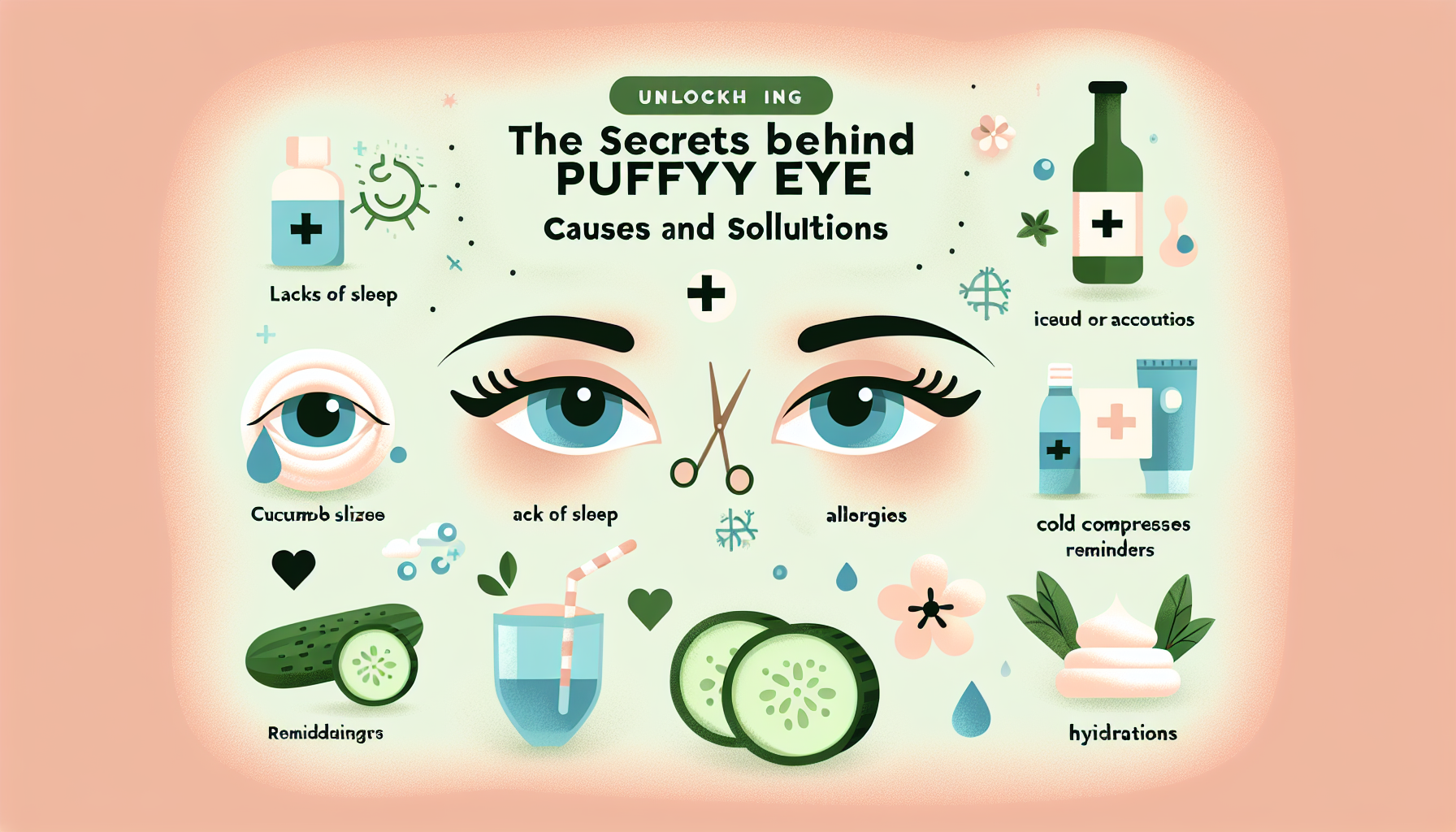Why Do Our Eyes Swell? Understanding the Reasons Behind Puffy Eyes
Have you ever woken up after what seemed like a good night's sleep, only to find your eyelids feel swollen and heavy? Or perhaps you've had a good cry, and you're left with uncomfortable puffiness around the eyes. Our eyes, it seems, are particularly sensitive components of our daily appearance and can become swollen for a variety of reasons. While experimenting with different remedies for puffy eyes is common, frequent swelling might signal underlying health issues. Let’s explore some common causes of eye puffiness and what they might be indicating about your health.
1. Lack of Sleep
Have you ever wondered why your eyes appear puffier after a night of tossing and turning? Dr. Anar Mikailov, a dermatologist and co-founder of Skintensive, explains, “Lack of sleep leads to an increase in certain hormones that cause fluid retention." This fluid buildup can manifest as puffiness, especially around the eyes. Sleep is crucial for the body’s detoxification processes. Without adequate rest, toxins begin to accumulate, leading to swelling among other health issues.
2. Sleep Position
Interestingly, it’s not just the amount of sleep that can affect your appearance, but also how you sleep. Dr. Mikailov notes that sleeping face down causes fluids to pool around your face and eyes. Similarly, lying flat can lead to swelling due to gravity. To combat morning puffiness, try supporting yourself with an extra pillow to keep your head elevated. This simple adjustment can help gravity steer fluids away from your eyes.
3. Hormonal Changes
Those who menstruate may notice puffiness near the start of their cycle. During this time, elevated progesterone levels can cause the body to retain extra fluid, leading to visible swelling around the eyes, Dr. Mikailov points out.
4. Allergies
Seasonal allergies often bring itchy, swollen eyes along with them. If you find your eyes are puffy as those spring blooms start to pop, you're not alone. An increased release of histamines leads to inflammation and swelling, commonly manifesting in our faces, Dr. Mikailov adds.
5. Dehydration
When the body lacks water, it clings on to precious fluids, often leading to fluid retention and swelling (what we call edema). This hydration imbalance over time can result in persistent puffiness.
6. Crying
Dr. Mikailov mentions, “When you cry, the tissues around your eyes absorb excess tears, leading to puffiness.” Rubbing your eyes can irritate the delicate skin around them, enhancing the swelling. Dermatologist Dr. Marisa Garshick agrees that tears can trigger inflammation, contributing further to puffiness.
7. Alcohol Consumption
Dr. Rebecca Marcus, a dermatologist and founder of MaeiMD, cautions that alcohol can cause the body to retain fluid, resulting in a bloated appearance that can linger into the next day. Alcohol also disrupts sleep quality, which we already know can exacerbate swollen eyes. Additionally, it can provoke inflammation, another major contributor to puffiness.
8. Sodium Intake
A high-sodium diet can lead to dry skin as your body retains more fluids, with the most noticeable changes often occurring around the eyes and face, explains Dr. Mikailov. If swelling is concerning you, experts suggest cutting back on salty foods. Packaged and processed foods often contain hidden sodium, potentially leading to excessive intake more than you realize.
9. Aging
Unfortunately, puffiness is sometimes simply part of the aging process. As skin naturally loses collagen and elastin, the fat under the eyes might shift, creating a baggy appearance. Dr. Mikailov notes, "The skin around the eyes gets thinner and loses its supportive structure as we age, making puffiness more pronounced."
10. Thyroid Conditions
If swelling becomes severe or persistent, it could be time to consult a doctor. Dr. Mikailov warns that more serious health conditions like thyroid issues can cause lasting puffiness. Pay attention to how long swelling lasts, and reach out to your healthcare provider if concerns persist.
11. Genetics
For some, eye bags are simply hereditary. If you've noticed everyone in your family seems to share this trait, it might just be nature's way. While surgical options to modify under-eye bags exist, focusing on preventative measures might help reduce the severity of bags as you age.
In the quest for clearer, less puffy eyes, understanding the root cause of the swelling is your best ally. Whether it’s adjusting your lifestyle, diet, or sleep habits, small changes can lead to significant improvements. And remember, when in doubt, a healthcare professional can help guide you toward the best solution.
